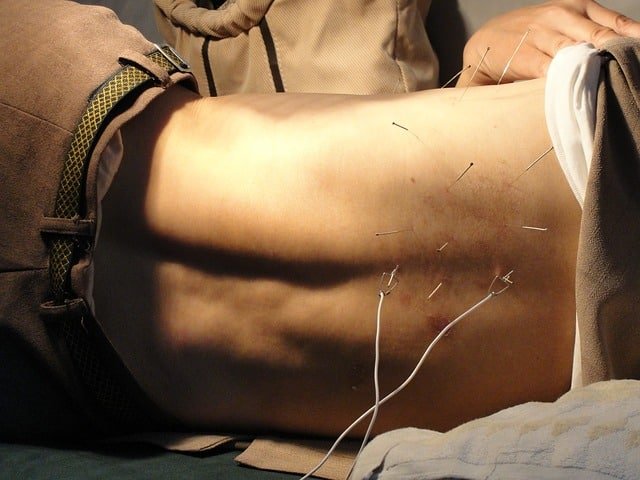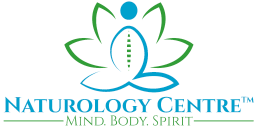Enhancing Acupuncture with Complementary Therapies
The Synergy of Acupuncture and Shiatsu
Shiatsu massage is incorporated to enhance the manipulation of Qi through touch, warming the meridian pathways for a more effective acupuncture experience.
Magnet Therapy as a Supportive Measure
Magnet therapy is used alongside acupuncture to continue stimulating acupuncture points, extending the session's benefits and promoting longer-lasting relief.
Qi Gong: Cultivating Energy Flow
Gentle movements and meditation are taught as part of Qi Gong to boost the energetic effects of acupuncture and promote a healthy flow of Qi.
Personalized Lifestyle and Nutritional Advice
Our TCM practitioners offer individualized lifestyle and nutritional guidance to support your body’s specific energy needs, optimizing the effects of our treatments.
Herb and Vitamin Support
We recommend specific TCM herbs and vitamins to complement acupuncture, enhancing your body's natural healing processes.
Electro-Acupuncture for Enhanced Benefits
Electro-acupuncture, a modern evolution of traditional acupuncture, involves the application of a gentle electrical current to the acupuncture needles. This method is used to further stimulate the acupuncture points, providing an intensified therapeutic effect that can be particularly beneficial for managing pain and chronic conditions.

Acupuncture Can Help You Sleep Better, Digest Better, and Feel Better Emotionally!
Acupuncture is a 3,000 year-old Traditional Chinese Medicine (TCM) healing technique. The National Institutes of Health (NIH) in the USA publicized acupuncture's safety and efficacy for treating a wide range of conditions in 1997. Acupuncture is now widely used in natural-based health care to relieve pain or improve health outcomes and is covered by many private health insurance policies.
How Does Acupuncture Work?
Acupuncture improves the body's functions and promotes natural self-healing by stimulating specific anatomic sites known as acupuncture points or acupoints. The most common way to stimulate acupoints is to insert fine, sterile needles into the skin. Some practitioners use pressure, heat, or electrical stimulation to enhance the effects. Other acupoint stimulation techniques may include manual massage, moxibustion or heat therapy, cupping, and the application of topical herbal medicines and linaments.
Traditional Chinese Medicine is founded on an ancient philosophy that describes the universe and the human body in terms of two opposing forces: yin and yang. The body is healthy when these forces are in balance. Throughout the body, energy known as "qi" (pronounced "chee") flows along specific pathways known as meridians. This constant flow of energy maintains the balance of the yin and yang forces. However, if the flow of energy is disrupted, such as when water becomes stuck behind a dam, the disruption can cause pain, loss of function, or illness. Acupuncture therapy can stimulate the process and release blocked qi in the body, eliciting the body's natural healing response through various physiological systems. For many, acupuncture has helped to resolve pain and improve sleep, digestive function, and overall well-being by stimulating the body's multiple systems. Modern research has demonstrated acupuncture's effects on the nervous system, endocrine and immune systems, cardiovascular system and digestive system.
What Really Happens During an Acupuncture Session?
Your acupuncturist will start first by inquiring about your medical history. Then, depending on your specific health needs, they will examine your tongue's shape, colour, and coating, feel your pulse, and may perform some additional physical examinations. The acupuncturist can recommend a suitable treatment plan for your specific condition using these unique assessment tools. To begin the acupuncture treatment, you lie comfortably on a treatment table while precise acupoints on various parts of your body are stimulated. As the fine needles are gently inserted, most people experience no or minimal discomfort. The acupuncture needles are usually kept in place for five to thirty minutes. People often say they feel very relaxed during and after their treatments.
How Many Sessions Do I Need?
The number and frequency of treatments vary from person to person. Some people report dramatic relief after the very first treatment. One to two treatments per week is usually recommended for several months for complex or long-standing chronic conditions. Fewer visits are typically required for acute problems, eight to ten in total. You may be given an individualized treatment plan that includes the expected number of treatments during your initial visit.
| Condition | Description |
|---|---|
| Acute Epigastric Pain | Common in GI disorders such as ulcers and gastritis |
| Back Pain | Includes lumbar, thoracic, and nonspecific back pain |
| Biliary Colic | Pain from gallbladder stones |
| Correction for Fetal Malposition | Used to adjust the position of a fetus in utero |
| Dental Pain (TMJ) | Includes temporomandibular joint disorders |
| Depression | For depressive states, including post-stroke depression |
| Dysentery, Acute Bacillary | Bacterial infection causing severe diarrhea |
| Headache | General category, including tension and migraine headaches |
| Hypertension | High blood pressure management |
| Knee Ache | Includes osteoarthritis and other knee joint problems |
| Labor Induction | Used to stimulate the onset of labour |
| Leukopenia | Low white blood cell count |
| Morning Sickness | Nausea and vomiting during pregnancy |
| Nausea and Vomiting | Includes post-operative and chemotherapy-induced |
| Neck Pain or Discomfort | Including whiplash and cervical spondylosis |
| Pain After Surgery | Postoperative pain management |
| Pain in the Face | Includes trigeminal neuralgia and craniomandibular disorders |
| Primary Dysmenorrhea | Painful menstruation |
| Primary Hypotension | Abnormally low blood pressure |
| Renal Colic | Severe pain from kidney stones |
| Rheumatoid Arthritis | Chronic autoimmune inflammatory disorder affecting joints |
| Allergic Rhinitis | Allergy symptoms affecting the nose |
| Sciatica | Nerve pain along the sciatic nerve pathway |
| Shoulder Periarthritis | Inflammation around the shoulder joint |
| Sprain | Stretching or tearing of ligaments without dislocation |
| Stroke | Cerebrovascular accident recovery support |
| Tennis Elbow | Lateral epicondylitis, elbow tenderness and pain |
Conditions Treated by Acupuncture (Limited but Likely Evidence)
| Condition | Description |
|---|---|
| Abdominal Pain | Associated with gastroenteritis or spasms |
| Acne Vulgaris | Common skin conditions with pimples |
| Acute Spine Pain | Sudden onset of back or neck pain |
| Alcohol Dependence and Detoxification | Support for overcoming alcohol addiction |
| Arthritis Gouty | Inflammatory arthritis from excess uric acid |
| Asthma of the Bronchioles | Respiratory condition causing bronchial constriction |
| Bell's Palsy | Temporary facial paralysis |
| Bronchial Asthma | Chronic respiratory disorder with airway inflammation |
| Cancer Pain | Pain management associated with cancer |
| Cardiac Neurosis | Heart-related anxiety disorder |
| Cardiovascular Neuropathy | Nerve damage associated with the cardiovascular system |
| Cholecystitis, Chronic, with Acute Exacerbation | Inflammation of the gallbladder, often with gallstones |
| Chronic Urolithiasis and Ulcerative Colitis | Chronic conditions affecting urinary and digestive systems |
| Closed Cranial-cerebral Injury | Head injury without skull fracture |
| Competition Stress Syndrome | Anxiety and stress in competitive situations |
| Convalescence after Surgery | Recovery period following surgical procedures |
| Craniocerebral Injury, Closed | Non-penetrating head injury |
| Dependence on Opium, Cocaine, and Heroin | Support for addiction to narcotics |
| Detoxification and Alcoholism | Assistance with detoxing from alcohol dependence |
| Diabetes Mellitus (non-insulin-dependent) | Management of type 2 diabetes |
| Disturbance of Gastrointestinal Kinetics | Disorders affecting gastrointestinal motility |
| Earache | Pain in the ear; otalgia |
| Endoscopic Examination Caused Pain | Pain resulting from endoscopic procedures |
| Epidemic Haemorrhagic Fever | Acute viral fevers characterized by bleeding |
| Epistaxis, Simple | Common nosebleeds without systemic disease |
| Eye Pain | Pain due to subconjunctival injection |
| Facial Spasm | Involuntary muscle contractions in the face |
| Fasciitis and Fibromyalgia | Inflammation and chronic pain affecting muscles and soft tissue |
| Female Infertility | Complex issues affecting a woman's ability to conceive |
| Fibromyalgia & Fasciitis | Conditions characterized by widespread musculoskeletal pain |
| Gastrokinetic Disturbance | Disorders affecting movement through the GI tract |
| Gouty Arthritis | Arthritis caused by urate crystal accumulation |
| Hemorrhagic Fever Epidemic | Widespread viral diseases cause fever and bleeding |
| Hepatitis B Virus Carrier Status | Chronic hepatitis B infection without active disease |
| Herpes Zoster | Shingles caused by varicella-zoster virus reactivation |
| Hyperlipaemia | High levels of lipids in the blood |
| Hypo-ovarian | Low ovarian function or activity |
| Insomnia | Difficulty falling or staying asleep |
| Labour Pain | Pain experienced during childbirth |
| Lactation Deficiency | Inadequate milk production for breastfeeding |
| Male Sexual Dysfunction | Issues related to male sexual performance |
| Ménière Disease | Disorders causing vertigo and hearing loss |
| Neuralgia (postherpetic) | Pain following shingles infection |
| Neurodermatitis | Chronic skin condition causing itchy patches |
| Non-insulin-Dependent Type 2 Diabetes | Chronic condition affecting blood sugar regulation |
| Obesity (weight management) | Excess body weight and fat accumulation |
| Osteoarthritis | Joint inflammation leads to pain and stiffness. |
| Ovarian Polycystic Syndrome (Stein-Leventhal syndrome) | Hormonal disorder causing irregular menstruation and cysts. |
| Pain Associated Thromboangiitis Obliterans (Buerger disease) | Vascular disorder causing pain and inflammation in extremities. |
| Pain in Thrombi Angiitises Obliterans | Chronic pain is associated with blood clots and vessel inflammation. |
| Pediatric Extubation | Management of pain and complications after tube removal in children. |
| Polycystic Ovary Syndrome (Stein-Leventhal syndrome) | Endocrine system disorder affecting ovaries. |
| Post-extubation in Children | Care for children after the removal of a breathing tube. |
| Postherpetic Neuralgia | Chronic nerve pain following shingles. |
| Postoperative Convalescence | Recovery period following surgery. |
| Premenstrual Syndrome (PMS) | Physical and psychological symptoms before menstruation. |
| Prostatitis (chronic) | Long-term inflammation of the prostate gland. |
| Pruritus | Severe itching of the skin. |
| Radicular and Pseudoradicular Pain Syndrome | Pain that radiates along a spinal nerve root. |
| Raynaud's Syndrome (primary) | Vascular disorder causing discoloration of the fingers and toes. |
| Recurrent Lower Urinary Tract Infection | Frequent infections in the urinary system. |
| Reflex Sympathetic Dystrophy | A condition with abnormal pain response to an injury. |
| Schizophrenia | A mental disorder characterized by abnormal behaviour and reduced ability to understand reality. |
| Sialism, Drug-induced (excessive salivation) | Overproduction of saliva triggered by medication. |
| Sjögren's Syndrome | Immune system disorder characterized by dry eyes and mouth. |
| Smoking (tobacco use) | Nicotine addiction often leading to tobacco dependence. |
| Sore throat (including tonsillitis) | Inflammation of the throat, sometimes including tonsil inflammation. |
| Spasms of the Face | Involuntary muscle contractions in the facial region. |
| Stiff Neck | Difficulty moving the neck often accompanied by pain. |
| Subconjunctival Injection-related Eye Pain | Pain associated with bleeding underneath the conjunctiva of the eye. |
| Temporomandibular Joint Dysfunction (TMJ) | A disorder causing pain and compromised movement of the jaw joint and the surrounding muscles. |
| Tietze Syndrome | Inflammation of costal cartilages causing chest pain. |
| Tourette's Syndrome | A neurological disorder characterized by repetitive, stereotyped, involuntary movements and vocalizations called tics. |
| Urethral Syndrome in Females | Complex of symptoms related to pain during urination without evidence of urinary tract infection. |
| Urine Retention (trauma) | Inability to empty the bladder usually due to neurological trauma. |
| Vascular Dementia | Cognitive impairments caused by reduced blood flow to the brain. |
| Whooping Cough (pertussis) | A highly contagious respiratory tract infection that is preventable by vaccine. |
